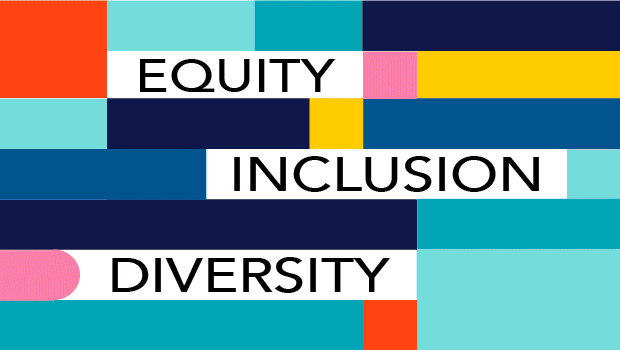EID: Our 2023 highlights
At Kaiser Permanente Washington Health Research Institute (KPWHRI), our mission is to improve health and well-being for all communities. Because actively promoting equity, inclusion, and diversity is central to this goal, we prioritize EID across all aspects of our work: our research, our workforce, and engaging with communities.
Research
Studying ways to promote better health for all, recruiting diverse research participants, and co-designing studies and interventions with patients are some of the different ways EID is promoted through our research. Below are just a few examples.
Almost all cervical cancers can be prevented through screening by identifying and removing precancers caused by the human papillomavirus (HPV). But fewer people are now getting screened, compared to 20 years ago. To help address this, a recent study that included KPWHRI researchers showed that making screening more accessible by mailing HPV test kits to people’s homes significantly increased cervical cancer screening.
At KPWHRI’s Center for Accelerating Care Transformation (ACT Center), researchers collaborated with patient partners to co-design a toolkit by and for people living with persistent pain. The “Toolkit for Managing Persistent Pain” is available in English and Spanish and provides practical tips to help anyone living with ongoing pain.
Inclusion of diverse participants in research studies is another way KPWHRI promotes EID in our work.
- With funding under a U19 grant, a major goal of the Adult Changes in Thought (ACT) Study is making the study more inclusive of diverse racial and ethnic groups. The study is already seeing results: Previously, the cohort was 80% to 90% white. Now, new enrollment is about 50% from historically marginalized communities, reflecting a much more diverse cohort.
- The Resolve project — which is studying telehealth-delivered psychotherapy for people with chronic pain — prioritized outreach to more rural and medically underserved communities, including people from diverse ethnic groups.
- The SMARRT study — a trial looking at individualized approaches to improve dementia risk factors — also focused on recruiting people of underrepresented ethnic groups and shifted from in-person to telephone participation to reduce COVID-19 exposure risk and to have greater reach for those that may have difficulties doing in-person visits.
KPWHRI researchers also took steps to expand their study materials and scopes to be more inclusive.
- The BackInAction study, a trial of acupuncture for older adults with chronic low back pain, included more diverse participants by having both Spanish- and English-speaking interviewers for study outreach and recruiting and by providing study materials in both languages.
- The STOP Falls study — which aims to prevent falls among older adults via deprescribing risky medications and education around self-care for symptoms — adapted and expanded materials for those with cognitive challenges and to include caregivers.
- The LARCH study — which is looking at interventions to increase adherence to lung cancer screening — received funding to expand the study to evaluate digital health, patient-provider communication, and health equity, along with support for the dissertation of a University of Washington (UW) doctoral student.
- KPWHRI is also partnering on a study to identify the best and safest antibiotic regimens to treat urinary tract infections in pregnancy. The study received a diversity supplement to support a UW master’s degree student whose thesis will examine racial and ethnic disparities in the risk of urinary tract infection and its treatment in pregnancy.
Workforce
KPWHRI’s internal strategic plan focused on 2 major projects in 2023: fostering a culture of well-being and diversifying our workforce. Individual departments, workgroups, and staff also took steps to promote an inclusive workplace and support EID efforts.
To help foster a culture of well-being, a group of KPWHRI employees assessed the current state of well-being and virtual and hybrid collaboration at KPWHRI. The project team organized a survey that was completed by 73% of staff (239 people) and held 5 focus groups of colleagues with different backgrounds, lengths of employment at KPWHRI, job roles, and divisions. After analyzing the information they collected, the team developed short- and long-term recommendations for improvements, such as fostering opportunities for mentoring and social connection.
To make progress on diversifying our workforce, a KPWHRI project team (formed through a blinded recruitment process) reviewed previous initiatives related to equity in hiring at the institute, collected hiring materials from every division, interviewed stakeholders from regional and national Kaiser Permanente teams, and produced a gap-analysis outlining opportunities to promote equity in hiring at KPWHRI. This work led to the development and launch of a new hiring process, with “EID Checkpoints” at every step.
Individuals and groups also advanced EID through training, tools, and other initiatives.
- A KPWHRI researcher and pediatrician co-facilitated a cohort of 8 pediatricians to complete MOC (Maintenance of Certification) quality improvement activities through the GATHER curriculum. GATHER, which stands for Generate and Teach Health Equity Routinely, seeks to advance the equity, diversity, and inclusion goals of medical providers.
- The Center for Community Health and Evaluation (CCHE) integrated an all-encompassing strategy of EID by providing their team members with EID training — workshops on allyship and trauma-informed systems — as well as implementing an EID tool to assess how their work does or does not meet their EID goals.
- KPWHRI’s administrative programming group made their web applications more accessible by improving color contrast, font sizes/scales, and keyboard navigation, and also by including a screen reader functionality.
- A new “Checklist for Inclusive Communications” was launched by KPWHRI’s Center for Accelerating Care Transformation (ACT Center). The checklist is used to review language, images, and format for external communications products, and was recently used to improve a resource for health providers on cannabis use.
- Another ACT Center equity tool — the “Project Lifecycle Checklist: Integrating Health Equity” — was used by the Integrated Pain Management team, the Addressing Barriers to Care (ABC) Study project team, and the ACT Center’s advanced analytics team to facilitate discussions about promoting equity in their projects and research.
In 2023, KPWHRI employee groups — the Health Equity Special Interest Group, EID Champions, and the EID Committee — continued to provide opportunities for learning together about different topics on health equity in research, for collaborating and encouraging self-reflection, and for sharing resources. Sharing best practices is another theme. One example: a recent all-institute presentation on the process of translating study materials into different languages.
Community
Engaging with communities is another way KPWHRI employees are contributing to EID. Here are a few examples.
In partnership with Fred Hutch, KPWHRI developed and implemented a summer program in data science and biostatistics for undergraduate student interns from underrepresented backgrounds in biomedical research. The project will also take place for the next 4 summers.
Another EID project led by the Center for Community Health and Evaluation (CCHE) is the production of community health needs assessment (CHNA) reports for all Kaiser Permanente regions and hospitals. CCHE completely reformatted report templates to meet ADA (Americans with Disability Act) accessibility guidelines. They are also incorporating Web Content Accessibility Guidelines into the next version of the public-facing Community Health Data Platform, which is the main source of CHNA quantitative data.
In 2023, KPWHRI marked a significant milestone: the completion of the CATALyST learning health systems (LHS) K12 training program, which trained early-career scientists to do research to improve experiences and outcomes for patients, providers, and health care delivery systems. Recognizing that health care systems need to improve access to quality care for people from historically marginalized populations, many of the CATALyST scholars focused their research on integrating the perspectives and needs of patients from these populations to design interventions that are culturally tailored and inclusive.
KPWHRI employees engaged with our community by participating in the Seattle/King County Clinic, which brings people together from across Washington state to produce a giant free health clinic at Seattle Center. Many staff members volunteered at the 4-day event, helping to provide free dental, vision, and medical care to anyone in the region who struggles to access or afford health care.
KPWHRI’s commitment to ongoing improvements in equity, inclusion, and diversity is demonstrated by the highlights above, and our continued progress year after year.
Thank you to everyone at KPWHRI for their work toward EID and to everyone, along with their teams, who contributed to this report: Carolyn Bain, Ben Balderson, Jennifer Bobb, Sarah Brush, Carol Cahill, Sascha Dublin, Carolyn Eng, Nicole Gatto, Annie Hoopes, Linda Kiel, Rebecca Lau, David Maydoney, Jennifer McClure, Jessica Mogk, Roxanne Muiruri, Daniel Riness, Lisa Schafer, Susan Shortreed, Kelsey Stefanik-Guizlo, and Karen Wernli.
Compiled by Sparrow Harness and Eric Goemer, KPWHRI EID Committee members

See KPWHRI’s website for more information on our research areas, capabilities, and latest news, and to subscribe to our newsletter.
Contact:
Caroline Liou
Communications Director
Caroline.X.Liou@kp.org



